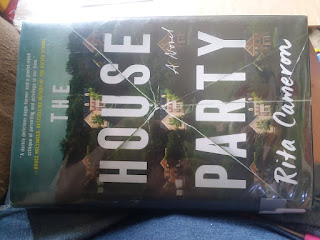Juvenile nonfiction
"Entomophagy is practiced in most parts of the world, including Africa, Asia, Australia, Mexico, and South America. Beetles, caterpillars, ants, wasps, bees, grasshoppers, and locusts are the most commonly eaten insects, but they're hardly the only ones being devoured. In fact, more than 2,100 species are regularly consumed in a out 113 different countries.
So, why is it that in the United States, Canada, and Europe most folks would rather squish bugs than eat them?"
Why indeed? That's one of the questions Mary Boone addresses in Bugs for Breakfast: How Eating Insects Could Help Save The Planet. This fascinating book introduces middle grade readers to the nuances of entomophogy which is not just the domain of contestants on wilderness survivalist shows.
The fact is that the diet practiced by most Americans, focused on the consumption of large animals such as cows and pigs, is unsustainable. It requires too much in the way of limited resources. The methane put out in large animal farts is a seriously deadly greenhouse gas. And with the world population steadily rising and more people aspiring to emulate the American lifestyle the shit (oh, yeah, another nasty animal byproduct with deadly environmental consequences) will hit the proverbial fan in the not so distant future.
Young readers learn why insect farming is so much more eco friendly than raising large animals, how even modest dietary changes toward entomophogy (similar to the popular meatless Mondays) can help the planet, and how they can get started. The book includes thirteen yummy looking starter recipes.
And, although targeted toward kids, it isn't just for them. Joseph Yoon, a chef, says, "Bugs for Breakfast is the book I wish I had when I first started working with edible insects--it's incredibly informative, entertaining, and quite simply delicious! While targeting a younger audience, this will still be the book that I recommend anyone interested in entomophogy read immediately."
An affordable paperback, it's quite a wise investment.
Boone is optimistic that insect eating will go mainstream, even in the United States. She cites two examples of foods going from eeeuw, gross! to trendy. The idea of eating raw fish and seaweed grossed most white Americans out in the past. Now sushi is popular in venues ranging from college cafeterias to posh restaurants. And then there's a food that in this nation's settler colonist days was considered garbage, "fit only for servants, children, prisoners, or the very poor." Now most tourists visiting my adopted state wouldn't consider their stay complete without at least one Maine lobster.
I only have one problem with the book. And it isn't unique to it. It includes gratuitous ageism. A line is drawn between those who first eat a bug by age 40 and those who don't, turning a measure that is really a continuum into a binary and contributing to the portrayal of older people as hopelessly stodgy and lacking in curiosity and adaptability. Hasn't the woman heard of intersectionality. Class and ethnicity can be factors along with education level, degree of familiarity with entomophogy, and availability and cost of insects. There is the fact that we are more influenced than we'd like to think by the people around us. Certain residential and work settings would be more open than others. So how many candles you blow out on your birthday is only one of a number of factors.
On a purrrsonal note, I've had insects and consider them quite tasty. When I get my degree and my first professional job I plan to find out where to get them and start eating them on a regular basis. Of course I'll need to put a mini fridge in my studio. Eugene would freak out if he thought there were insects in the freezer. And we're talking about someone who eats Spam and pepperoni! (Jules)
I am avant garde. I supplement my commercial cat food with yummy insect protein. Any time a bug flies or crawls into my turf I get to exercise my predatory prowess and it becomes what's for snack. (Tobago)
A great big shout out goes out to all who practice entomophogy.
Tobago and Jules Hathaway
Sent from my U.S.Cellular© Smartphone




















